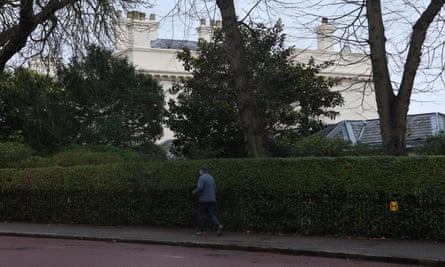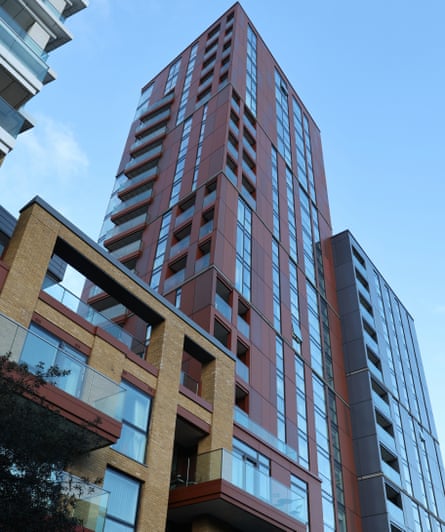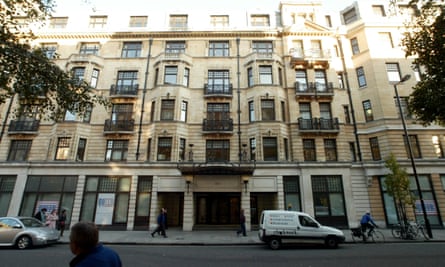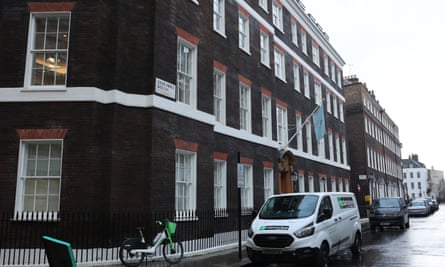The royal families of Gulf states including Saudi Arabia, the United Arab Emirates and Qatar own more than £1bn of UK property via offshore jurisdictions, such as Jersey and the British Virgin Islands, the Guardian can reveal.
Nearly 200 properties, including hotels, London mansions and country estates, belong to a few small but super-rich dynasties, according to analysis of a new government register that reveals who is behind offshore companies that own UK property.
Gulf royals who hold assets through offshore entities include Sheikh Mansour, the owner of Manchester City football club, members of the Al Saud ruling family of Saudi Arabia, and the al-Thani clan that controls Qatar.
The most expensive is a £150m Surrey estate which, according to Land Registry documents, is owned by Sheikh Mansour’s wife, Sheikha Manal bint Mohammed al-Maktoum.
Sheikh Mansour, who is the deputy prime minister of the UAE, owns 17 other land titles via Jersey, including a London apartment and land connected to urban developments in Manchester.
 View image in fullscreenThe Holme in Regent’s Park, London. Photograph: Andy Hall/The Guardian
View image in fullscreenThe Holme in Regent’s Park, London. Photograph: Andy Hall/The Guardian
The Saudi royal family also holds a vast array of property via offshore entities, including the Holme, a lakeside manor in the middle of London’s Regent’s Park, built in 1818.
The property is owned by a Guernsey-based entity, whose beneficial owners include Abdullah bin Khalid Al Saud, the kingdom’s representative at the United Nations. It was reportedly for sale for £185m in 2020.
 View image in fullscreenPinto Tower, Nine Elms, London. Photograph: Andy Hall/The Guardian
View image in fullscreenPinto Tower, Nine Elms, London. Photograph: Andy Hall/The Guardian
Another royal, Turki bin Salman Al Saud, is the ninth son of the king and brother to the country’s de facto ruler, Mohammed bin Salman. Turki Al Saud owns a BVI-based company called Moncrieff Holdings, which owns 18 properties in London, including flats in the Pinto Tower in Nine Elms.
Qatari royals have also used offshore jurisdictions to spend vast sums on UK property. Sheikh Thani bin Abdullah al-Thani, a member of the dynasty that has ruled over Qatar since the 19th century, owns 12 companies on the register of overseas entities, all of them based in the British Virgin Islands.
Those companies own 16 properties, including 160 Great Portland Street in London, a seven-floor office block purchased for £127m in 2018, according to Land Registry records.
The sheikh’s property empire also includes a £48m office building on London’s Southwark Street, three addresses worth a combined £31m in Soho and the headquarters of the technology company Sony on Great Marlborough Street.
 View image in fullscreen160 Great Portland Street, London. Photograph: Graham Turner/The Guardian
View image in fullscreen160 Great Portland Street, London. Photograph: Graham Turner/The Guardian
Another member of the clan, Mohamed Khalifa al-Thani, bought 1 Queen Anne’s Gate, a 27-apartment block on the edge of St James’s Park near Buckingham Palace, for £139m in 2019. The development was designed by David Linley, the son of the late Princess Margaret.
Previous Guardian analysis has shown that the Qataris own approximately £10bn of UK property, including prestige assets such as the Shard and Harrods. But the register of overseas entities reveals for the first time how the al-Thanis and other Gulf royals have used offshore jurisdictions to expand their UK property holdings.
 View image in fullscreen1 Queen Anne’s Gate, London. Photograph: Andy Hall/The Guardian
View image in fullscreen1 Queen Anne’s Gate, London. Photograph: Andy Hall/The Guardian
In total, members of the ruling families of Saudi Arabia, the UAE, Qatar, Jordan and Bahrain own nearly 200 properties worth at least £1bn via offshore companies in the BVIs, Jersey, Guernsey and Panama.
Quick Guide
UK for sale: reporting on the register of overseas entities
Show
The UK government’s new register of overseas entities was created to improve transparency around British property ownership and help the authorities ensure the right amount of tax is paid. Holding property through offshore companies is legal. Owners of property through offshore companies may do so for many reasons, from tax benefits to privacy or liking the stability or simplicity of a certain offshore tax regime. In the words of the government, offshore taxation is “complex”.
But ministers have concluded transparency around foreign ownership of UK property is an important step in improving the operation of the tax system. “Whilst the vast majority of people and businesses pay the right amount of tax, mistakes are made,” the government said in its explanation of why the register was being introduced. The register of overseas entities appears to be a big step forward in transparency, with thousands of owners, including the ones reported on by the Guardian, coming forward to declare their properties. All those named as beneficial owners on the register have complied with their legal obligations to declare their holdings. About a quarter of the companies making declarations so far still do not reveal their ownership publicly, because trusts are only required to give information on their beneficiaries to the tax authorities.
The Guardian has previously reported on offshore ownership of companies via leaks such as the Paradise papers and the Pandora papers, leading to governments including the UK government applying greater scrutiny to international tax affairs and offshore secrecy. The Guardian believes shining a light on the property in the UK held through foreign and offshore firms by rich, politically connected and influential people enhances that process of transparency and allows readers to better understand the power structures that affect their daily lives.
Was this helpful?Thank you for your feedback.
The Guardian is shining a light on owners named on the register in view of the public interest in improving transparency around the ownership of British property. Holding properties through offshore companies is legal and some individuals may have genuine and legitimate privacy or security concerns or business reasons for using them.
The register of overseas entities opened last year and individuals have until 31 January to declare they are the beneficial owners of offshore companies that own UK property.



